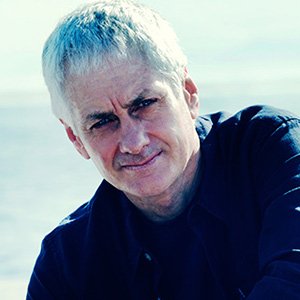
COURSE LENGTH
START DATE
COMPLETION DATE
AVAILABILITY
COST
10 WEEKS
By arrangement
10 weeks later
TAKING ENROLMENTS
R 7250
Course Registration



Many writers start out with fiction and then cross the open ground to non-fiction, usually to write a memoir. Interestingly, since the movement called “the new journalism” revitalised non-fiction in the 1960s, these sorts of life stories have become some of the most fascinating books published. Consider Tom Wolfe’s The Right Stuff or Alexandra Fuller’s Don’t Let’s Go To The Dogs Tonight or Jenny Diski’s Sailing to Antarctica. As a journalist I have long had a fascination with writing reality. And I’ve been fortunate enough to be commissioned to write biographies, memoirs, and history. Which is why I’ve put together the non-fiction short course. I’ve a soft spot for turning reality into stories.
Course Outline
Module 1 Stories
There are many options when it comes to writing what are called non-fiction narratives: autobiography, memoir, biography, history, travel writing. Which one suits your story? This module looks at the various types of stories and what your position as writer will be in your own story.
Module 2 Characters
Whichever way you look at it, whether you are writing a memoir, a travelogue or a biography, you will have to write about other people. That’s never easy because these are real people. How do you describe them? How to you describe their emotional behaviour? Learn how in this module.
Module 3 Current Events
History and current events at some point will feature in your writing whether you’re writing a travelogue, a memoir or a biography. Often this means descriptive writing and reporting. How do you fit that into your style? There are various ways you can handle this and this module focuses on those techniques. It also looks at style and how best to structure your sentences.
Module 4 Scenes
In this module we’ll look at how to develop your story and how to describe scenes. Scenes are the building blocks of any story and you need to be able to fill them with details so that the reader’s imagination can take over and ‘complete’ your story.
Module 5 Dialogue
You’re now set up for the great leap forward in non-fiction writing: creative non-fiction. Way back in the late 1960s, a bunch of journalists in the United States turned to the novel for ways of hyping up their non-fiction. What really grabbed their attention was dialogue. This module is about dramatisation using dialogue.
Module 6 Research
Non-fiction stories are about facts, they’re about the world out there – reality. So before putting words on the screen, collecting information is important. This is the raw material from which you will write and without it you have no story. This module will show you where to find that raw material in ‘family archives’ and beyond in state archives, libraries, and the internet.
Module 7 Voice
This module returns to the technicalities of writing. You might be wondering about your writing style, and even wondering what is meant by style. Is it a built-in part of you or something you can acquire, something that can be taught? Well, the answer is that it’s a bit of both. You will have an inherent style but you can learn how to improve and sharpen it.
Module 8 Bookends
By bookends, I mean the beginning and ending of your story. Both are critical. The beginning sounds logical but why should you be considering the ending before you’ve even written a word. Well, that’s because ending non-fiction stories, particularly autobiographies, memoirs and biographies can pose a problem, especially if the life that is their topic is on-going. We’ll look at solutions in this module.
Module 9 Revision
You have written the first draft of your non-fiction story. What now? In this module I’ll discuss some of the editing issues you need to be aware of and end with comments on publishing – be that by conventional means or self-publishing.
What you need to know
How does the course work?
Writing Reality is a nine-module course that lasts 10 weeks. Each week on Monday, a new module is released with extensive notes on the topic, links to interviews with writers discussing the topic, extra reading material, and a chat room forum where we can connect and talk about writing, and where you will have contact with your fellow students. There will be new topics put up for discussion each week. An important focus with each module is your assignment, which is targeted to allow you to experiment with some of the techniques explained in the notes. Each assignment will be reviewed with constructive detailed feedback.
How much time should you set aside?
The notes will take you between an hour and 90 minutes to read and digest, the extra material will take another 30 minutes and the assignment could take anything up to 45 minutes. You should probably factor in spending another hour on the chat-room forum over the week as this will be useful interaction with the other writers on your course. So, for each module allocate between three and four hours spread over the week.
What device should you use?
The notes have to be downloaded as pdf files and for that a laptop or tablet is the best device. However, this website can also be accessed through your smartphone, and you could certainly participate on the forum that way, view the extra material, or answer the assignment.
Course Registration

If you’d like more information about my courses, please get in touch via the Contact page.
To register for this course, please click the button below.
Wanna do this course? Drop me a message and let’s see what dates we can fix up in 2025.
I’m fairly flexible so it’s more or less up to you.
PAYMENTS
Payment is a single one-off amount.
The cost of the Writing Reality course is
R7250
REFUNDS
Should you decide to cancel your participation on the course a 50% refund will be considered before the release of Module 2.
At the end of the course

You will have all you need to write your works of non-fiction – whatever genre you’ve chosen. You might now be thinking: what next? Why not sign up for The Writers’ Masterclass which is nine months of supervision. What most writers who’ve taken the Masterclass appreciate are the deadlines – they help you sit down to the business of writing. Because writing is about learning to sit still.
Join me for the next Writers’ Masterclass.
Other Courses with Mike Nicol

The Writers’ Masterclass
For the past twenty years I have been helping writers get their stories into print. This class offers nine months of online supervision and has a proven track record.

Writing Fiction
We are stories. We are our imaginations. And fiction is our way of connecting. This 11-week course will help you create intriguing characters, suspense and tight dialogue.